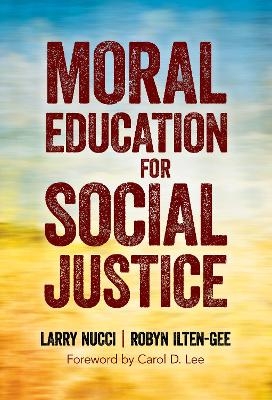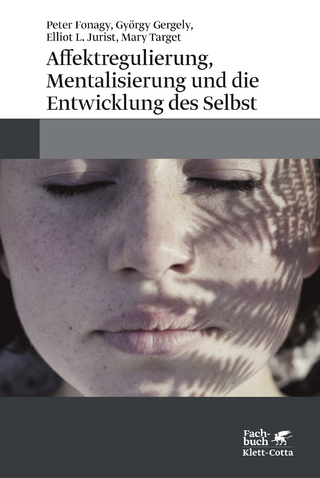
Moral Education for Social Justice
Teachers' College Press (Verlag)
978-0-8077-6563-0 (ISBN)
- Titel z.Zt. nicht lieferbar
- Versandkostenfrei
- Auch auf Rechnung
- Artikel merken
The authors draw from their work with teachers and students to address issues of social justice through the regular curriculum and everyday school life. This book illustrates an approach that integrates social justice education with contemporary research on students’ development of moral understandings and concerns for human welfare in order to critically address societal conventions, norms, and institutions. The authors provide a clear roadmap for differentiating moral education from religious beliefs and offer age-appropriate guidance for creating healthy school and classroom environments. Demonstrating how to engage students in critical thinking and community activism, the book includes proven-effective lessons that promote academic learning and moral growth for the early grades through adolescence. The text also incorporates recent work with social-emotional learning and restorative justice to nurture students’ ethical awareness and disrupt the school-to-prison pipeline.
Book Features:
Guidance to help teachers move from classroom moral discourse to engage students in community action.
Age-specific lesson plans developed with classroom teachers for integration with regular academic curricula.
Detailed overview of moral growth with examples of student reasoning.
Connections among moral development, critical pedagogy, and digital literacy.
Connections among classroom management, school rules, restorative justice, and students’ social development.
Insights drawn from research conducted within the Oakland Public School system.
Larry Nucci is an adjunct professor in the Graduate School of Education at UC Berkeley and professor emeritus of Educational Psychology at the University of Illinois at Chicago. Robyn Ilten-Gee is an assistant professor in Education at Simon Fraser University in British Columbia, Canada.
Contents
Foreword Carol D. Lee ix
1. Situating Students’ Moral Development Within the Context of Social Justice Education 1
PART I: MORAL DEVELOPMENT AND CHARACTER FORMATION 7
2. Defining the Moral Domain 9
Morality and Social Convention 9
Morality and Religious Rules 11
The Personal Domain 17
The Social Experiential Origins of Children’s Morality 19
Social Interactions and the Personal Domain 21
Moral Complexity 24
Informational Assumptions 27
3. Issues of Development 29
Age-Related Changes in the Personal Domain 30
Developmental Dynamics Between the Personal and Conventional Domains 34
The Development of Concepts of Social Convention 35
The Development of Concepts of Morality in Childhood and Adolescence 45
Development and Cross-Domain Interactions 56
4. Character as a Developmental System 58
The Limits of Traditional Views of Character 59
The Components of Character 61
Linking the Character System to Identity and the Self 66
Conclusion 66
PART II: SOCIAL LIFE IN SCHOOLS AND CLASSROOMS: CREATING ENVIRONMENTS THAT PROMOTE MORAL DEVELOPMENT AND SOCIAL JUSTICE 69
5. Schools and Classrooms as Moral Institutions: Rules, Norms, and Procedures 71
Children’s Concepts About School Rules 72
When Worlds Collide: School Rules and Social Justice 77
6. Promoting Moral Wellness and Social Justice Through Classroom Management, Climate, and Disciplinary Policies and Practices 82
The Big 5: Basic Elements of a Moral Classroom Climate 83
Facilitating Moral and Social Development Through Classroom Management: The Elementary Grades 89
Restorative Justice 98
PART III: MORAL EDUCATION AND CRITICAL PEDAGOGY ENACTED: THE CURRICULUM, DIGITAL MEDIA, AND PRAXIS 103
7. Critical Pedagogy and Domain-Based Moral Education: Complementary Frameworks for Comprehensive Social Justice Education 105
Overview of Critical Pedagogy 106
Alignment in Constructivist, Cognitive Foundations 107
Alignment in Fostering Reasoning Transformations 109
Alignment in Targeting Informational Assumptions 111
Alignment in Classroom Strategies 112
Critical Consciousness and Critical Moral Education: Even for Young Children! 114
8. Using the Academic Curriculum for Moral Development with a Social Justice Orientation: The Basics 117
Goals 119
Basic Principles of Lesson Planning 122
Putting This into Practice 123
From Peer Discourse to Critical Moral Perspectives: Creating Discussion for Engaged Reasoning 126
9. Lesson Plans for Moral Development and Social Justice: Some Examples 138
Morality 139
Social Convention 145
The Personal Domain 152
Complex Multidomain Issues 155
10. Critical Digital Pedagogy as a Component of Moral Education for Social Justice 163
What Is Critical Digital Pedagogy? 164
Examples of Critical Digital Literacy 174
11. Integrating Moral Education Within the Cycle of Praxis with Dr. Johari Harris, University of Virginia 177
Extending Curriculum-Based Moral Lessons to Include an Action Project 178
Integrating Moral Development Within an Action Project 187
Pivoting and Responding to an Emergent Issue 191
Issues of Grading and Assessment 192
12. Closing Thoughts 195
Addressing Student Emotions and Potential Resistance 196
Walking the Walk: Steps for Educators 199
Conclusion 201
References 203
Index 213
About the Authors 223
| Erscheinungsdatum | 01.09.2021 |
|---|---|
| Vorwort | Carol D. Lee |
| Verlagsort | New York |
| Sprache | englisch |
| Maße | 162 x 235 mm |
| Gewicht | 476 g |
| Themenwelt | Geisteswissenschaften ► Psychologie ► Entwicklungspsychologie |
| Sozialwissenschaften ► Pädagogik ► Allgemeines / Lexika | |
| Sozialwissenschaften ► Pädagogik ► Bildungstheorie | |
| Sozialwissenschaften ► Soziologie | |
| ISBN-10 | 0-8077-6563-5 / 0807765635 |
| ISBN-13 | 978-0-8077-6563-0 / 9780807765630 |
| Zustand | Neuware |
| Informationen gemäß Produktsicherheitsverordnung (GPSR) | |
| Haben Sie eine Frage zum Produkt? |
aus dem Bereich


